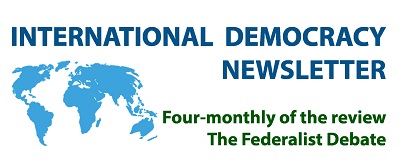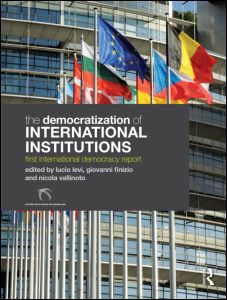The recent launch, on 19th April 2021, of the electronic platform supporting the Conference on the Future of Europe (https://futureu.europa.eu/) has marked the start of an event – the Conference itself – which has, on purpose, an open-ended result. On the one hand, it will organize a discussion among European citizens on the direction Europe should take in the next years and decades.
On the other hand, its results will much depend upon two factors: the equilibrium between pro and anti-integrationist forces within European and national institutions and the bottom-up input of the citizens. The Conference will occur under the joined patronage of the three leading European institutions and is expected to last one year: to this aim, Parliament, Council and Commission have signed a joined declaration on “Engaging with citizens for democracy – Building a more resilient Europe” on 10th March. Certainly, achieving a substantial progress while preserving the consensus between the three EU institutions will be a considerable challenge, but one which cannot be evaded.
The openness of the Conference’s results implies that it is a duty of the European federalists (and as I will say also of those beyond Europe) to intervene actively in the discussion. This will help the pro-integrationist camp (composed of the core of European MEPs and a part of national parliaments and governments) and permit the emergence of a more European-minded public opinion. Action is already ongoing as from the same 10th March, when the Union of European Federalists has called for “Our federal Europe: sovereign and democratic”. The federalist-minded Spinelli Group has announced on 20 April: “We have taken the first step in the creation of the federalist caucus of national and European parliamentarians who share the view that the Conference on the Future of Europe is an opportunity to transform the EU”.
The Conference will be formally opened on 9th May, but the simple publication of the Joint Declaration of 10th March has already impacted EU policies. Intentionally, the Declaration left open the question whether the Conference might eventually lead to Treaty changes or not. On this point, two ‘non-papers’ were released, marking the division between defenders of the status quo on the one hand and pro-integrationist (and even federalist) champions on the other one. The first ‘non-paper’ was by 12 countries (Austria, Czech Republic, Denmark, Estonia, Finland, Ireland, Latvia, Lithuania, Malta, the Netherlands, Slovakia, and Sweden) and the second by Italy. The 12 countries opposed to any legal obligations deriving from the Conference, while Italy was open to Treaty changes. But things may be moving, also under the pressure of new electoral results. For instance, after the success of the federalist party D66 in national elections, the Dutch have signed with Spain a non-paper on strategic autonomy, also in March, while Belgium and Spain have presented a non-paper on the social objectives of the EU in April. And most recently Chancellor Merkel stated the need to establish a Health Union, thereby opening the way to Treaty changes.
Paradoxically, emerging divisions among governments might be a positive sign, as they point to the inevitable exchange of views between those starting from opposite angles. On the other hand, every new polity is created by a constitutional synthesis of diverse standpoints, and in particular federal arrangements are always achieved with a view to coordinate levels of powers with potentially contrasting interests, while keeping each institution in charge in its own area of competence. To find the equilibrium between contrasting views, bringing together institutions and citizens will be crucial. Europeans are invited in the platform to express ideas on ten veritable public goods: (1) climate change and the environment; (2) health; (3) a stronger economy, social justice and jobs; (4) EU in the world; (5) values and rights, rule of law, security; (6) digital transformation; (7) European democracy; (8) migration; (9) education, culture, youth and sport, and (10) other ideas. Citizens may also want to organise events, bringing together citizens. In the first week, more than 5,000 citizens have taken the floor, and 200 events have been announced. The platform is accessible worldwide, and all those world citizens, for whom the success of Europe is a key step towards establishing international democracy, are invited to support us.



Publications